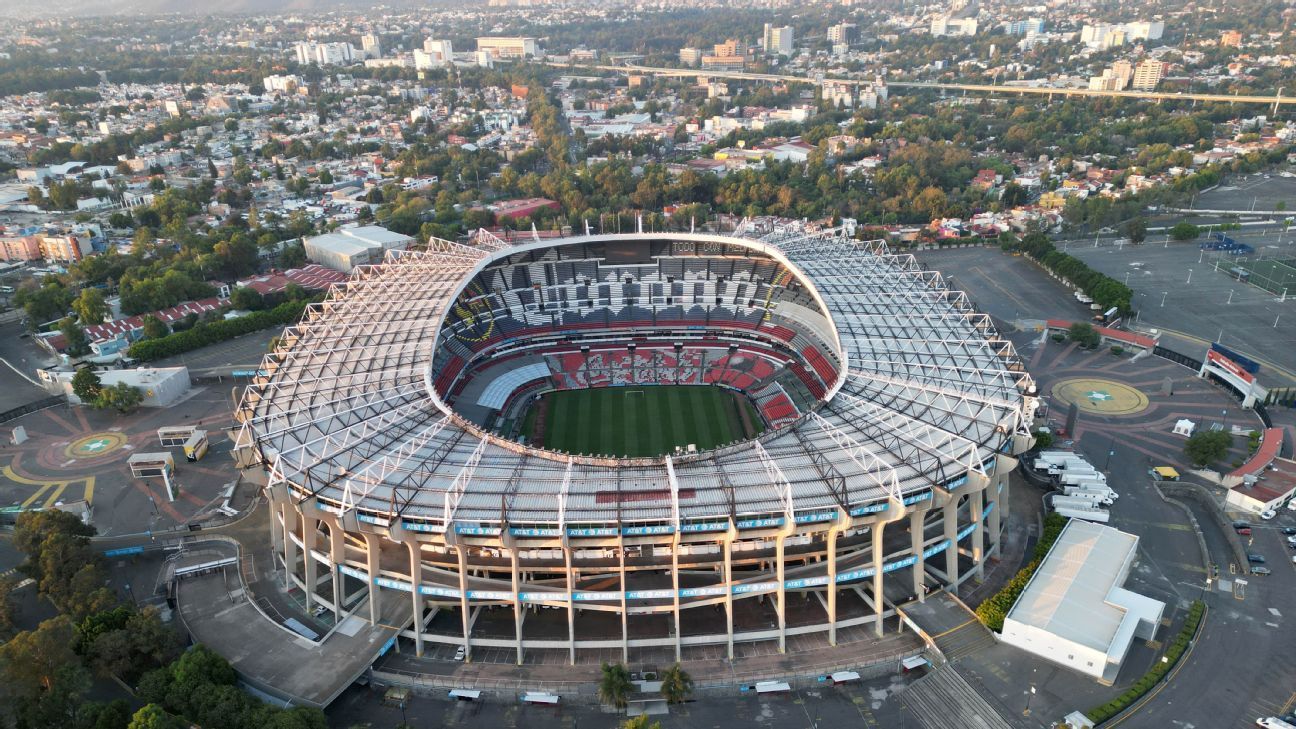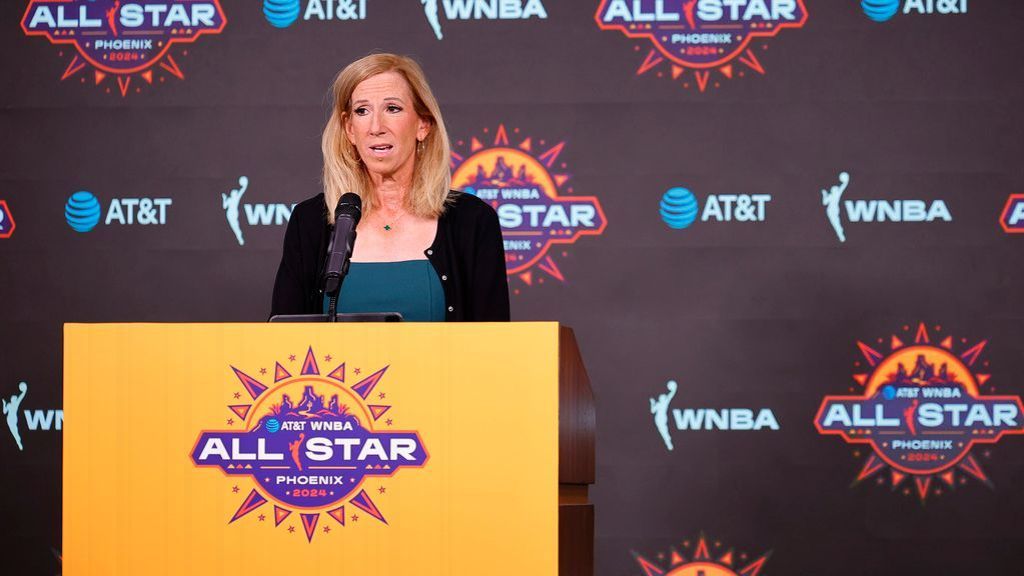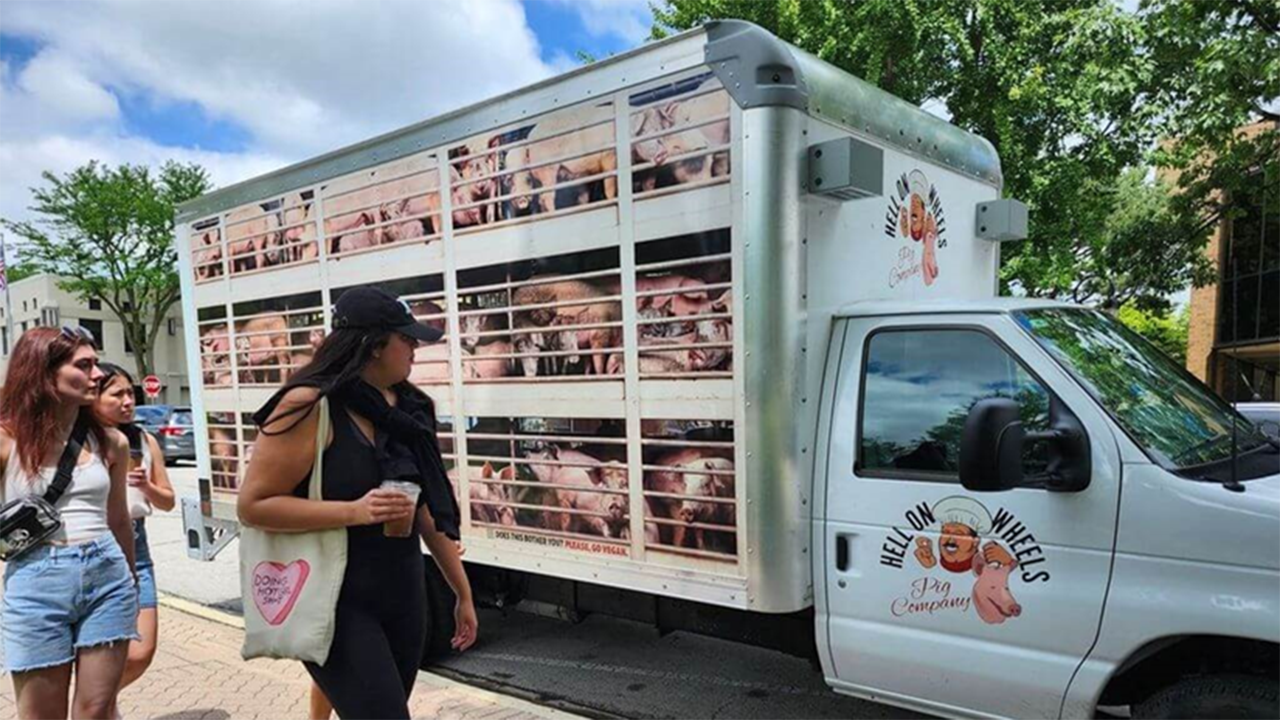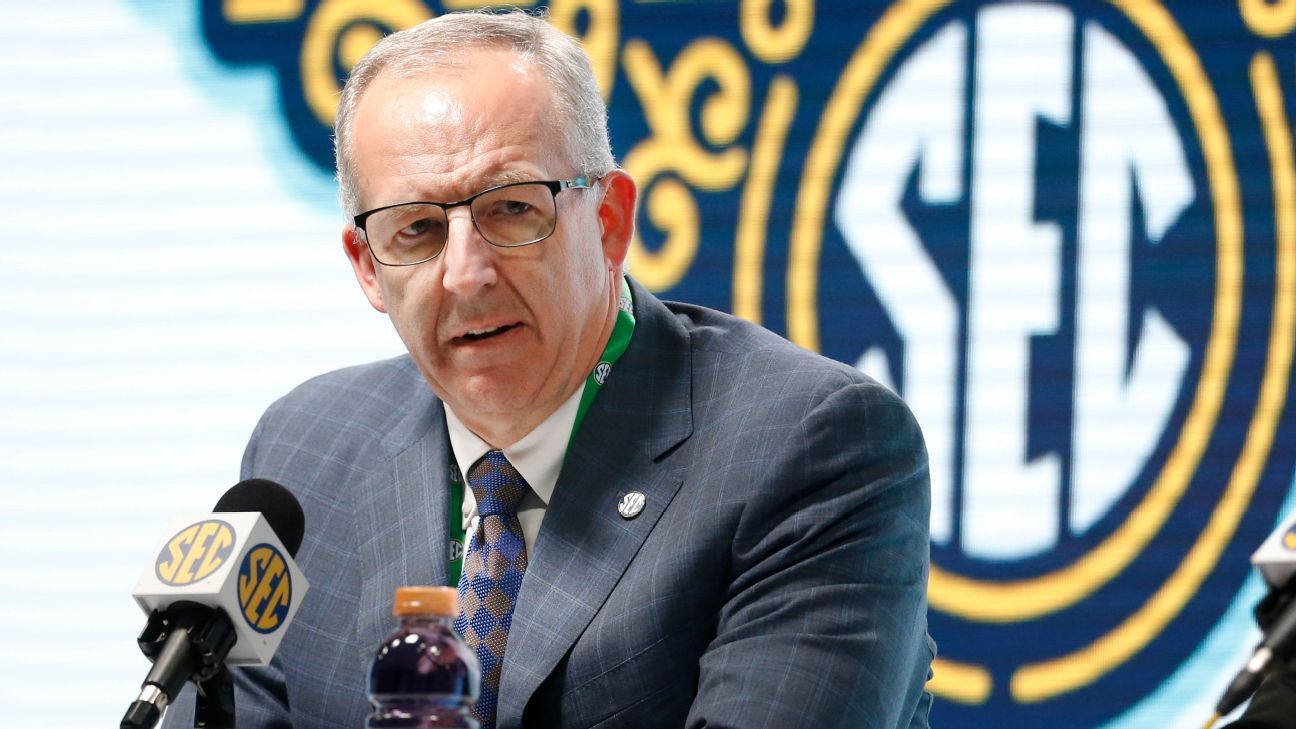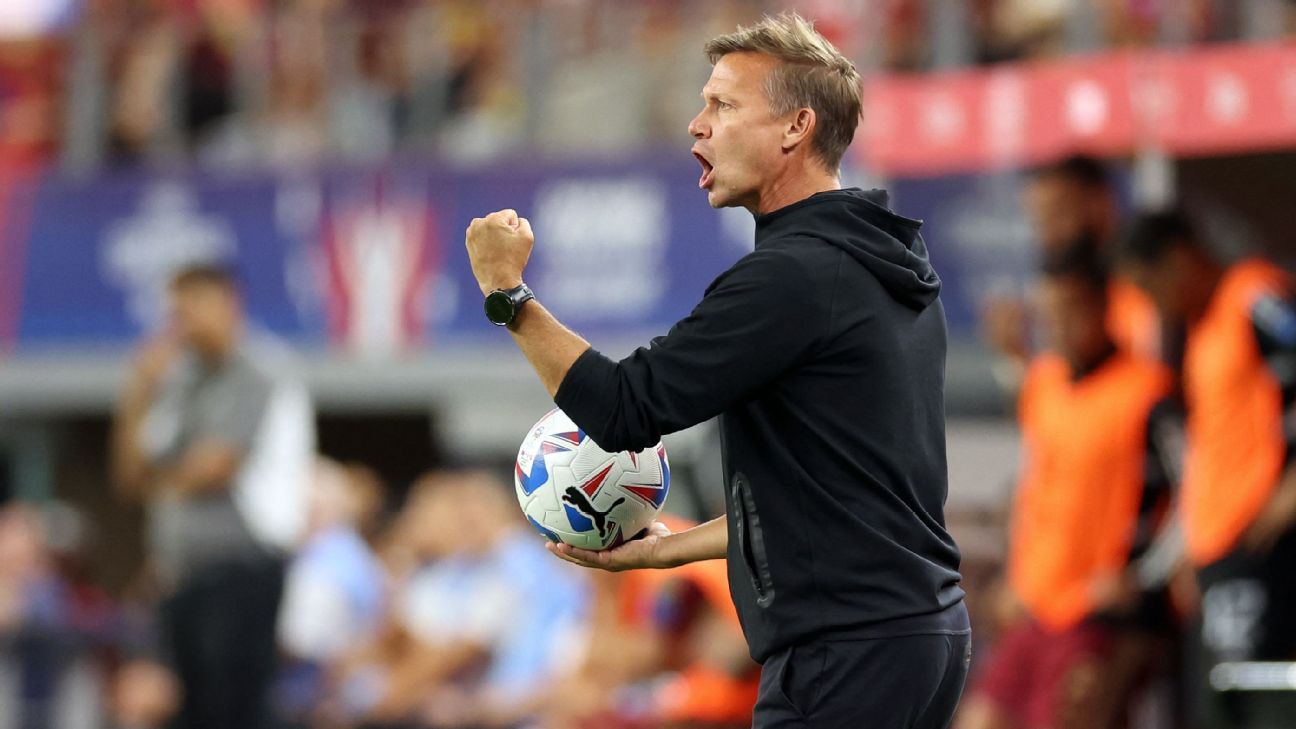Owners of luxury boxes at Mexico City's Azteca Stadium have said that for the 2026 World Cup they hope FIFA will honor a 60-year agreement that gives owners unlimited access to their seats for 99 years.
Meanwhile, FIFA has said it wants full control of World Cup stadiums 30 days before the first match and seven days after the last.
– Stream on ESPN+: LaLiga, Bundesliga, more (US)
But the peculiar story of how the boxes at the Azteca were purchased has created conflict, said the owner of the luxury box, Roberto Ruano.
Ruano, 61, spokesman for an association of 134 box owners, said he has no plans to give up his luxury box during the World Cup.
To help finance the construction of the stadium in the 1960s, Mexican businessman Emilio Azcárraga Milmo sold boxes to private investors for 115,000 pesos, or about $9,000 at the time, giving the owners rights of use for 99 years.
That included access to soccer games, concerts and other events, including the 1970 and 1986 World Cups in Mexico, Ruano said.
“There were no problems in 1970. For the 1986 World Cup they wanted us out and we met with FIFA officials, and they allowed us to use our place without extra payment, so there is a precedent for that,” he said.
When asked for comment, FIFA said it is collaborating with the 16 host cities of the 2026 World Cup, including plans to redevelop the Azteca Stadium, which will go down in football history as the first venue to host matches during three Cups. World Cups.
“Specific details on fan access and other information about the matches will be announced in due course,” FIFA said.
Azteca boxes are a top-level product in Mexico City. The current sale price for a 20 square meter box ranges between 15 and 25 million pesos (between 900,000 and 1.5 million dollars). Some owners rent them for specific events.
The 83,000-seat stadium will host five matches during the 2026 World Cup, including the opening match.
“We already paid for the right to be there when we bought the title and there can be no restrictions for us,” Ruano said. “We have a title behind us. It is not up for debate.”
When the stadium is handed over to FIFA for the tournament co-sponsored by Mexico, the United States and Canada, Ruano said he hopes the world soccer body will respect the agreement that dates back to the stadium's construction six decades ago.
Ruano, whose father bought title to the box, said he was hopeful the box issue would be resolved after talks with stadium officials last week, although no concrete proposal was yet on the table.
Emilio Azcárraga Jean, owner of the stadium through the multimedia company Televisa and son of Emilio Azcárraga Milmo, said he expects an agreement soon.
“For my father at that time it was very important to sell the boxes to finish the construction and, so far, there have not been any previous problems with the owners of the boxes. We will try to find a solution,” said Azcárraga Jean. W Radio, owned by Televisa.
Details of the Azteca's remodeling plans are unclear, but Ruano said some box owners outside their association have agreed to free up their seats for the 2026 tournament in exchange for upgrades to their boxes and other benefits.
“Each owner has the right to see what is best for him,” he said. “But that's not my case, I have the right to be there and no one can force me to leave. It would be like someone forcing me to leave my own house.”

